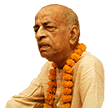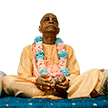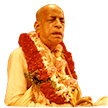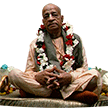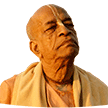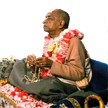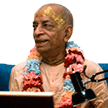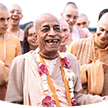Gautama - a glorious personality: Difference between revisions
(Created page with "Category:Glorious Personalities Category:Glorious Personalities from Bhagavad Gita Category:Glorious Personalities from Srimad Bhagavatam Category:Glorious Perso...") |
No edit summary |
||
| Line 10: | Line 10: | ||
{{Personalitiesnav}} | {{Personalitiesnav}} | ||
<!----------------- BEGIN STANDARD HEADING -----------------> | <!----------------- BEGIN STANDARD HEADING -----------------> | ||
Srila Prabhupada's books, lectures, conversations and letters reveal the qualities of this glorious personality as seen in the Vaniquotes '''[[Vaniquotes:Category: | Srila Prabhupada's books, lectures, conversations and letters reveal the qualities of this glorious personality as seen in the Vaniquotes '''[[Vaniquotes:Category:Gautama|Gautama]]''' category. An introduction from his books is given below in the following 8 quotes. | ||
<!----------------- END STANDARD HEADING -----------------> | <!----------------- END STANDARD HEADING -----------------> | ||
---- | ---- | ||
== Quotes from Srila Prabhupada's | == Quotes from Srila Prabhupada's books == | ||
<!----------------- edit quote boxes below this line -----------------> | <!----------------- edit quote boxes below this line -----------------> | ||
{{VaniQuotebox| | {{VaniQuotebox|All the brothers (Trita, Ekat and Dvita the three sons of Prajapati Gautama) were great sages and strict followers of the principles of religion. By dint of severe penances they were promoted to Brahmaloka|All the brothers were great sages and strict followers of the principles of religion. By dint of severe penances they were promoted to Brahmaloka (the planet where Brahmājī lives). Once Trita Muni fell into a well. He was an organizing worker of many sacrifices, and as one of the great sages he also came to show respect to Bhīṣmajī at his deathbed. '''(Śrīmad-Bhāgavatam 1.9.6-7)'''}} | ||
{{VaniQuotebox| | {{VaniQuotebox|Among the principal philosophers in India are Gautama, Kanada, Kapila, Yajnavalkya, Sandilya and Vaisvanara. And finally there is Vyasadeva, the author of the Vedanta-sutra|Among the principal philosophers in India are Gautama, Kaṇāda, Kapila, Yājñavalkya, Śāṇḍilya and Vaiśvānara. And finally there is Vyāsadeva, the author of the Vedānta-sūtra. So there is no dearth of knowledge in the field of philosophy or transcendental knowledge. Now the Lord says that this Ninth Chapter is the king of all such knowledge, the essence of all knowledge that can be derived from the study of the Vedas and different kinds of philosophy. '''(Bhagavad-gītā 9.2)'''}} | ||
{{VaniQuotebox| | {{VaniQuotebox|Arjuna, his eyes blazing in anger like two red balls of copper, dexterously arrested the son of Gautami and bound him with ropes like an animal|Arjuna, his eyes blazing in anger like two red balls of copper, dexterously arrested the son of Gautamī and bound him with ropes like an animal. Aśvatthāmā's mother, Kṛpī, was born in the family of Gautama. The significant point in this śloka is that Aśvatthāmā was caught and bound up with ropes like an animal. According to Śrīdhara Svāmī, Arjuna was obliged to catch this son of a brāhmaṇa like an animal as a part of his duty (dharma). '''(Śrīmad-Bhāgavatam 1.7.33)'''}} | ||
{{VaniQuotebox| | {{VaniQuotebox|Gautama and Kanada find that atomic combination is the cause of everything, and impersonalists like Astavakra discover that the spiritual effulgence of Brahman is the cause of all causes|Gautama and Kaṇāda find that atomic combination is the cause of everything, and impersonalists like Aṣṭāvakra discover that the spiritual effulgence of Brahman is the cause of all causes. But in the Bhagavad-gītā the Lord Himself declares that He is the source of impersonal Brahman, and therefore He, the Personality of Godhead, is the ultimate cause of all causes. It is also confirmed in the Brahma-saṁhitā that Lord Kṛṣṇa is the ultimate cause of all causes. '''(Śrīmad-Bhāgavatam 1.17.19)'''}} | ||
{{VaniQuotebox| | {{VaniQuotebox|Gautama was the grandfather of Krpacarya, one of the heroes of the Battle of Kuruksetra|The brāhmaṇas who profess Gautama-gotra are generally family descendants, and the kṣatriyas and vaiśyas who profess Gautama-gotra are all in the line of his disciplic succession. He was the husband of the famous Ahalyā who turned into stone when Indradeva, the King of the heaven, molested her. Ahalyā was delivered by Lord Rāmacandra. Gautama was the grandfather of Kṛpācārya, one of the heroes of the Battle of Kurukṣetra. '''(Śrīmad-Bhāgavatam 1.19.9-10)'''}} | ||
{{VaniQuotebox| | {{VaniQuotebox|On these seven stars reside seven sages: Kasyapa, Atri, Vasistha, Visvamitra, Gautama, Jamadagni and Bharadvaja. These seven stars are seen every night, and they each make a complete orbit around the polestar within twenty-four hours|Kaśyapa, Atri, Vasiṣṭha, Viśvāmitra, Gautama, Jamadagni and Bharadvāja. These seven stars are seen every night, and they each make a complete orbit around the polestar within twenty-four hours. Along with these seven stars, all the others stars also orbit from east to west. The upper portion of the universe is called the north, and the lower portion is called the south. Even in our ordinary dealings, while studying a map, we regard the upper portion of the map as north. '''(Śrīmad-Bhāgavatam 9.16.24)'''}} | ||
{{VaniQuotebox| | {{VaniQuotebox|The King of heaven, Indra, could steal anything without being visible to the proprietor, and he could kidnap anyone's wife without being detected. Once he raped the wife of Gautama Muni by using his disappearing art|It is understood from various scriptures and purāṇas that the King of heaven, Indra, was very expert in stealing and kidnapping. He could steal anything without being visible to the proprietor, and he could kidnap anyone's wife without being detected. Once he raped the wife of Gautama Muni by using his disappearing art, and similarly by becoming invisible he stole the horse of Mahārāja Pṛthu. '''(Śrīmad-Bhāgavatam 4.24.5)'''}} | ||
{{VaniQuotebox| | {{VaniQuotebox|There are many theoretical philosophers in the world who put forward their own theories of cause and effect. Generally there are six great philosophers - Kanada, Gautama, Patanjali, Kapila, Jaimini, and Vyasadeva|There are many theoretical philosophers in the world who put forward their own theories of cause and effect especially about the cause of suffering and its effect on different living beings. Generally there are six great philosophers: Kaṇāda, the author of Vaiśeṣika philosophy; Gautama, the author of logic; Patañjali, the author of mystic yoga; Kapila, the author of Sāṅkhya philosophy; Jaimini, the author of Karma-mīmāṁsā; and Vyāsadeva, the author of Vedānta-darśana. '''(Śrīmad-Bhāgavatam 1.17.18)'''}} | ||
<!----------------- edit quote boxes above this line -----------------> | <!----------------- edit quote boxes above this line -----------------> | ||
''' | '''Gautama - [[Vaniquotes:Category:Gautama|explore more within this category]]'''. | ||
{{GloriousPersonalitiesTotal}} | {{GloriousPersonalitiesTotal}} | ||
Latest revision as of 13:08, 12 February 2017
INTRODUCTION TEXT TO BE WRITTEN
Srila Prabhupada's books, lectures, conversations and letters reveal the qualities of this glorious personality as seen in the Vaniquotes Gautama category. An introduction from his books is given below in the following 8 quotes.
Quotes from Srila Prabhupada's books
Gautama - explore more within this category.
Vanipedia has now over 215 introductory articles compiled from Srila Prabhupada's teachings under the series titled Glorious Personalities. All these articles can be seen in the Table of Content on the right side of this article and also here in this Umbrella Category. Browse through them to relish the breadth and depth of Srila Prabhupada's teachings - There is an attractive personality for everyone.
